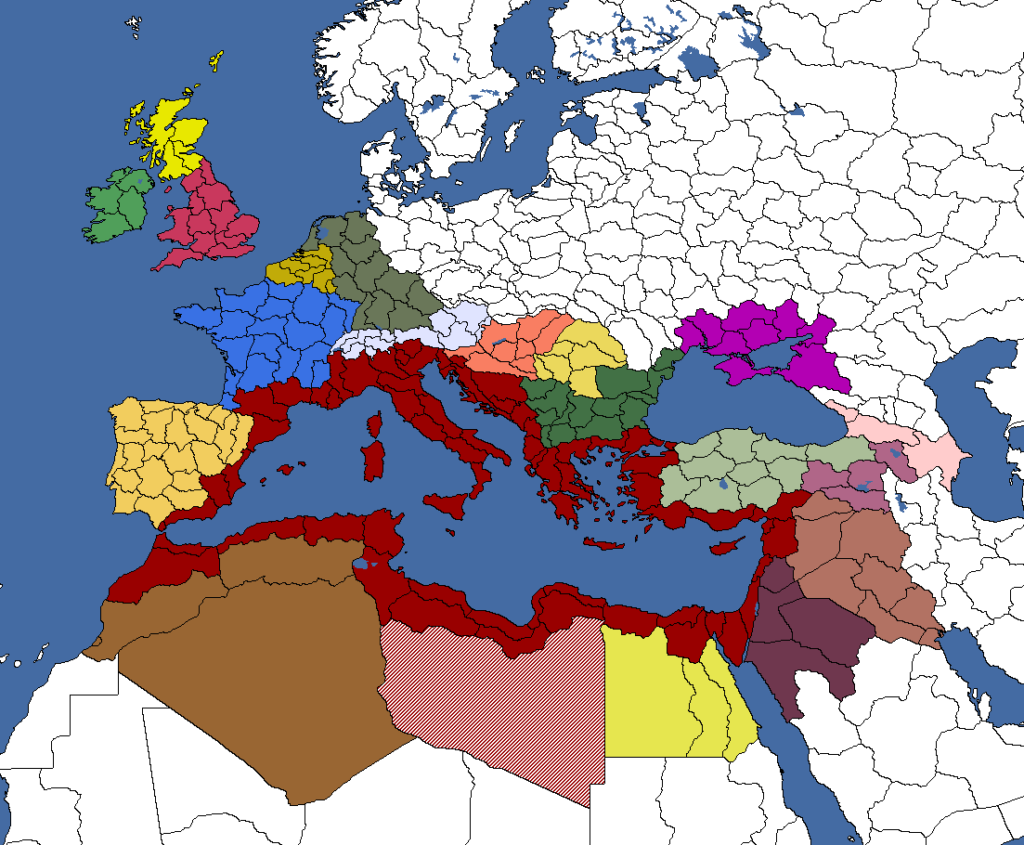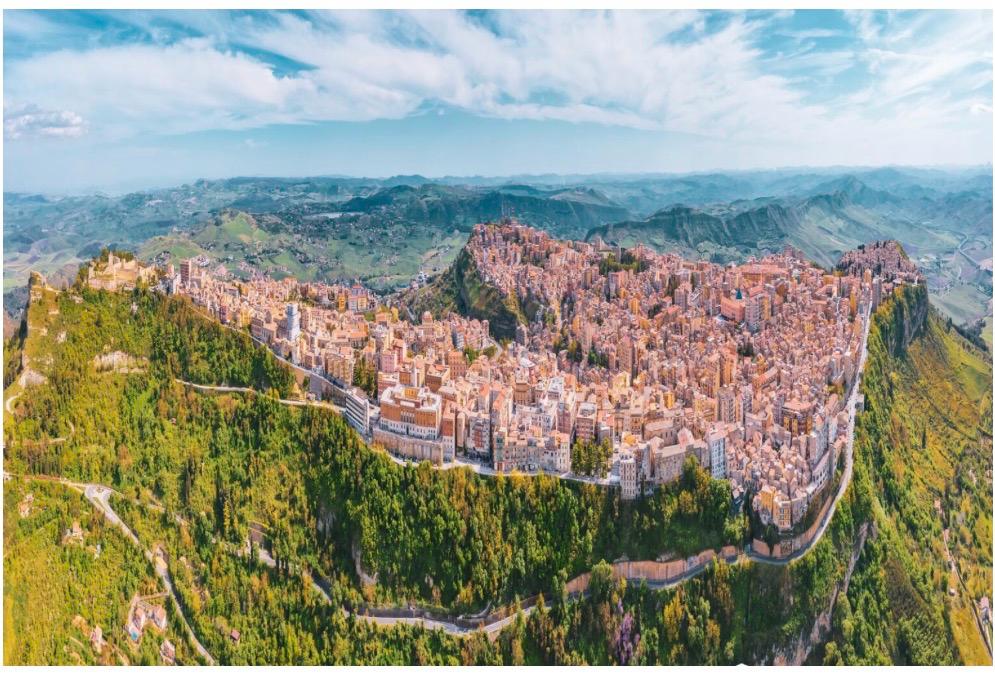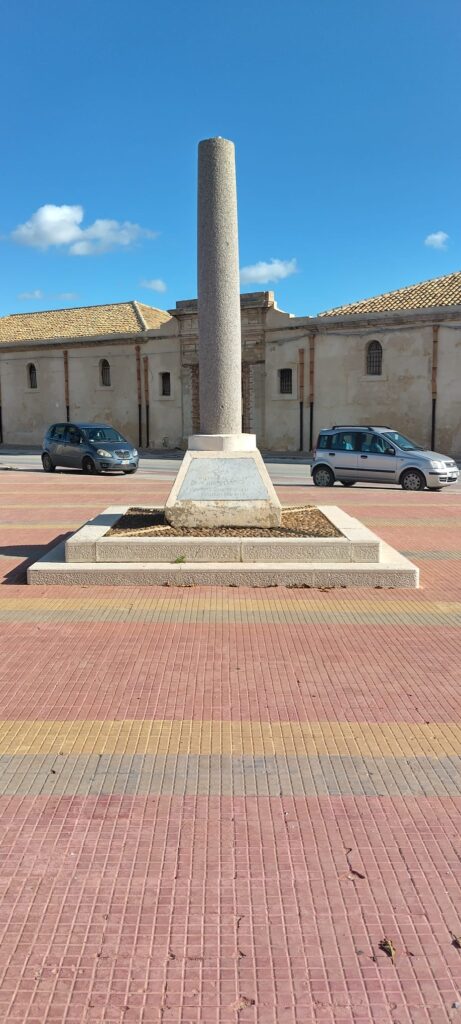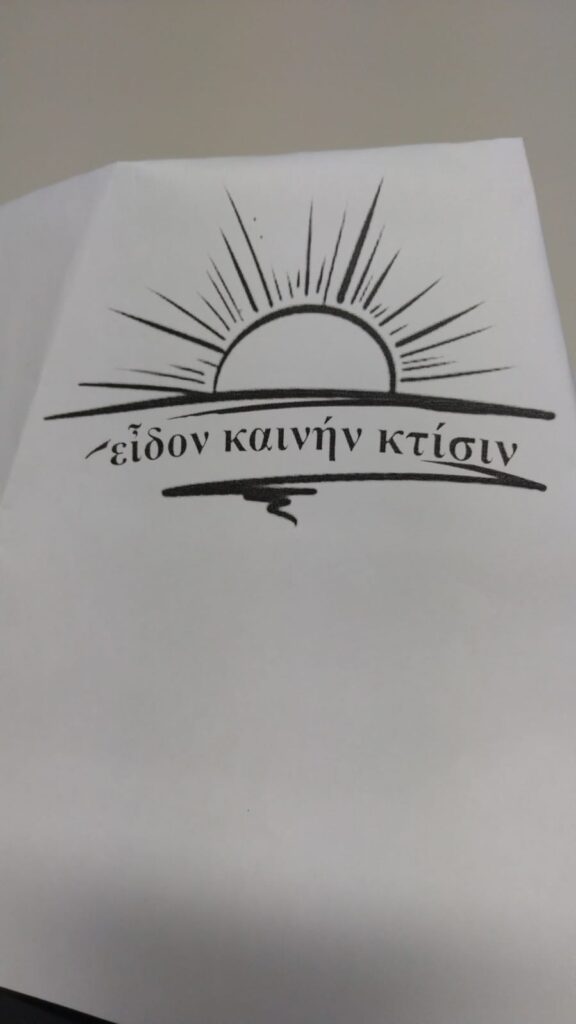
The map above shows the early Roman Empire and helpfully for this post is marked in red! Sicily is the football at the toe of Italy, the largest island in the Mediterranean, and pretty much in the middle. In history taking the island and colonising it became very strategic as from there so much could be controlled. It was the first colony of the republic of Rome (republic pre-dated empire but does not mean Rome did not act in Imperial ways).
I have been reflecting on a vision I had in 1998 of late, but first. Convictions and hopes / expectations. Convictions are deep, so John the Revelator saw Babylon collapse and the merchants weep at its collapse. I don’t know how John would have responded if we asked him – so when will this happen? Will it be in your life-time? Will it happen prior to the return of your Lord or when your Lord ‘appears’?
I don’t know what he would have said, and not sure he would know himself. Agnosticism of such things is awesome. He knew (and we are to know) that there is final outcome when the kingdoms of this world become the kingdom of our Lord and Christ. He knew to pray ‘let your kingdom come… on earth as in heaven’. I don’t think we will be judged on what happened in our life-time but what future we sowed into. In the academic world I believe there is some recovery of what I term the ‘Pauline gospel’ which in summary has to be rooted in Caesar in Rome is not lord of lords nor king of kings nor offers peace on earth, but the crucified Jewish Messiah who has been raised from the dead is all the above and hence there is an invitation to be ‘in Messiah’ where the divides of Jew and Greek, male and female, slave and free no longer count for anything. Paul with his logical language and John with his apocalyptic imagery (cartoons) are in agreement. Martin Luther King was in agreement – I have a dream… and thankfully many others have come in the same spirit. Paul, John, MLK all have a long term vision. Will it happen in your life-time. I think the response is ‘I don’t know but that is not my concern… my concern is whether I have sown in that direction’.
The future is not arrived at from today. Not in Scripture as I read it. 2026 will arrive in x-number of hours, but the future might or might not arrive then.
Back in the day coming from the fires of ‘Marsham Street’ I was motivated to ‘sow seeds for revival’ in as many places as would have me. The Welsh revival of 1904 was a motivating factor and I spent probably 6 months in Wales over the next few years. I had the privilege of being the speaker on the last anniversary in the 20th century in Moriah chapel, Loughor (Oct. 31) the place that is credited with the outbreak of ‘revival’. Prior to that I had a vision that I will outline, but have re-visited it since. Visions of the future meet us where we are and inevitably we interpret them from where we are. The visitation of Jesus did not easily fit with the expectation of the day but it was the fulfilment of the hopes that generations had carried.
In 1998 I had a major (for me) vision while in Wales. At the time I had a simple line to the future – something along the lines of a ‘Welsh revival’ would unfold. Today I hold to what I saw but ‘re-vision’ it. And in my life-time? I hope I remain agnostic but hope even deeper that I continue to be pushing for the future. What I saw was a wild-fire in Wales that could not be domesticated. It was not a fire in a fireplace that felt nice on a cold day, but a fire that was not safe, nor controllable. The fire just crossed the border to England but basically jumped England. It jumped and appeared in South Spain. It then went all around the northern Mediterranean until it came to Greece. There it stopped. When that stopped it then began in north Africa and went round the Southern part of the Med. When it came to roughly due south of Italy, the fire began to move again in Greece and move eastward as well as continuing in north Africa. Both then began to flow with a meeting point in the Middle East (and today I ask Gaza?????).
I did not connect it at all to the Roman Empire but when I saw the above map it was exactly as I saw it.
That radical uncontrollable wild fire can only be if Christendom is not a factor / dismantled / disempowered. True indigenous culture develops in the context of a multi-cultural setting, blah blah blah. I wrote recently that ‘Jesus-aligned-followers’ are vital – acting as leaven / catalysts for those who know how to release wild-fire.
Now we are in Sicily, right in the centre of the map I put above; an old map of Europe that shows Europe like a queen has Sicily as an orb with the cross over the top. The orb is the symbol of the world and the cross the symbol (in that context) of christendom (in this sign you will conquer). Back a while ago we visited both the burial place of Franco that had the largest cross of its type erected above it and then visited his birth home to pray. The cross has been colonised by powers, but the cross dismantled the powers! Today we visited the famous valley of temples in Agrigento – magnificient temples raised to Zeus and a hundred other gods. How radical was the gospel of the crucified Jesus who demonstrated that the Living God did not live in temples made by hands. Paul’s gospel did not have a comfortable environment, and perhaps any recovery of that gospel will require a similar resistant environment, for any recovery of the Pauline gospel can only be a first step. The second has to be believers in that gospel!

I have much more to reflect on our journey thus far. It is a learning curve for the significantly-ignorant such as I, and perhaps the biggest changes that are necessary are in me. So hopefully we will sow something of the future into Sicily so that she is kicked into play (Gayle’s phrase) and something spreads in Europe for the sake of our world. In my life-time? I hope I continue to say ‘not a clue’. But between 98 and 2025 there have been huge shifts in me, but I continue to say – let the wild-fire come and let those who know how to spread it rise. We are hearing such voices and most of them are not within the four walls.





